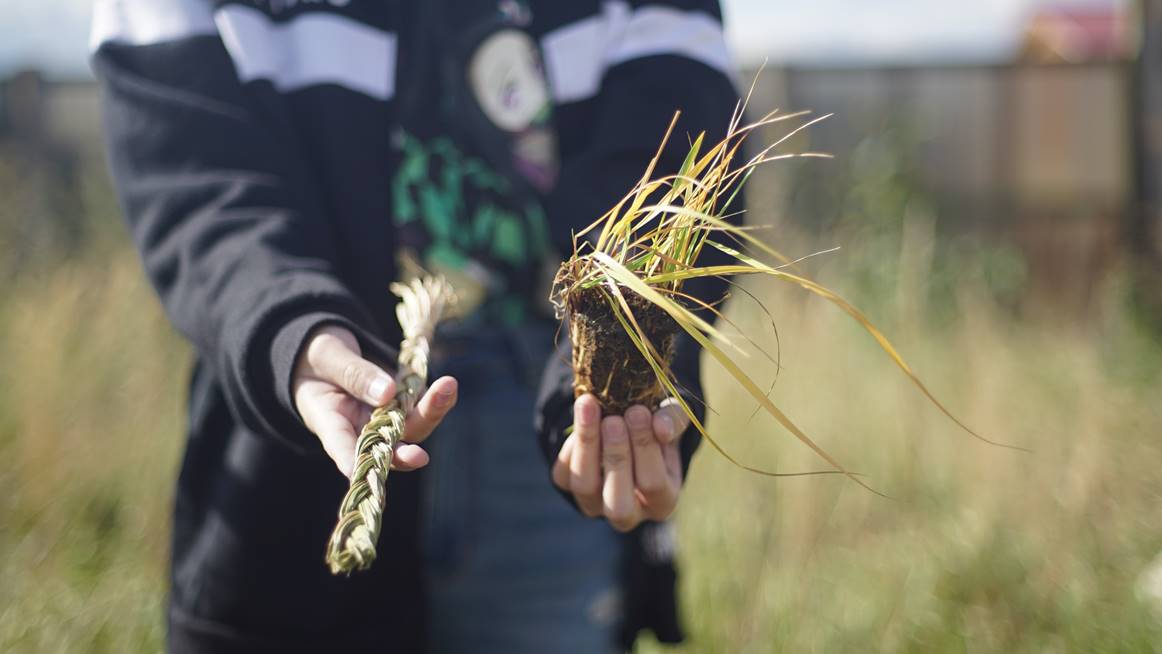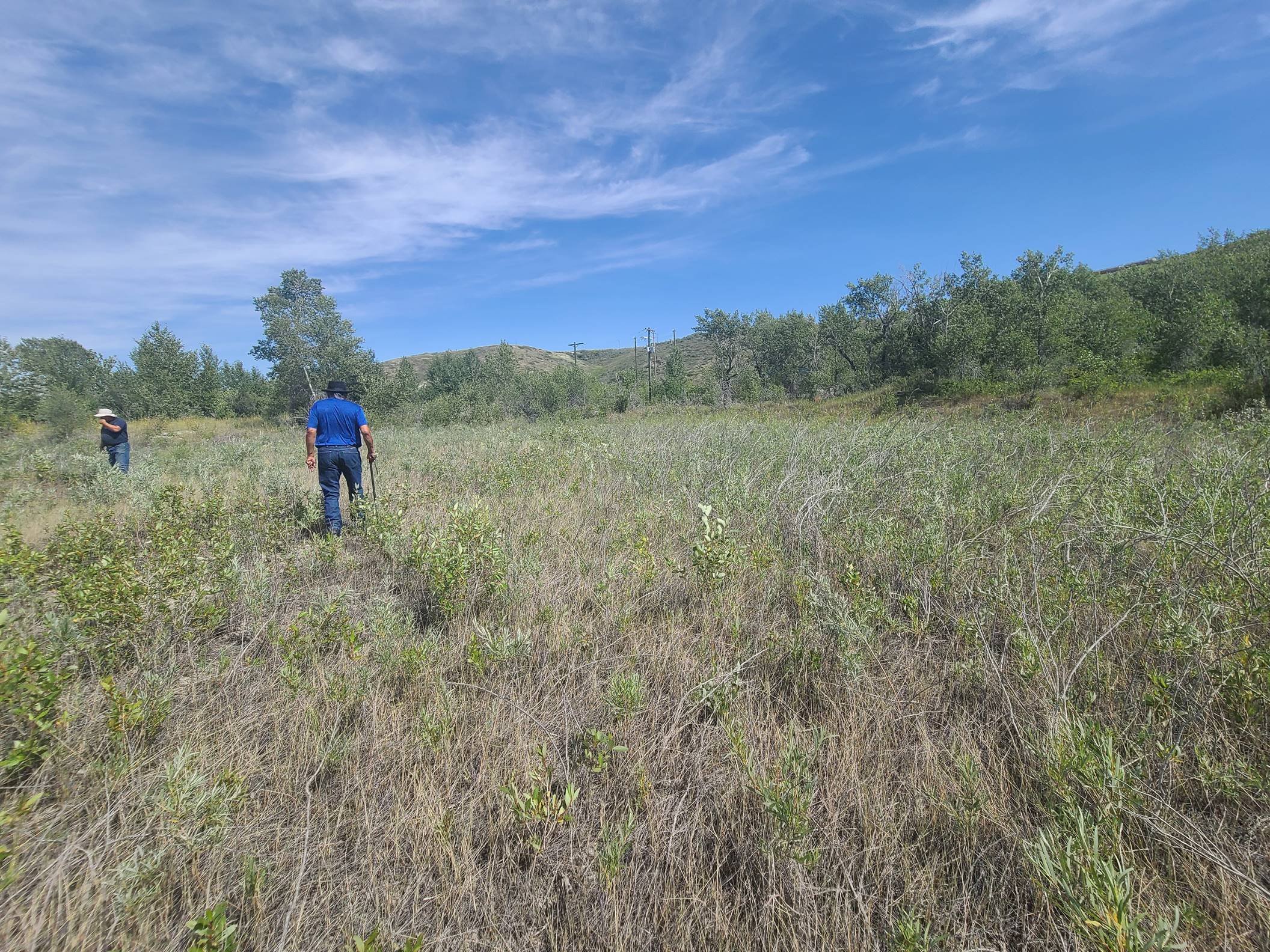*Top Project of the Year* — The Resilience Institute and the Piikani Nation explore the potential of Sweetgrass to strengthen our resilience to climate change, in “sūṗii⸱ṗo’omaaksin” or “in the spirit of planting seeds”
Projects Sponsor
Voted “Top Project of the Year” at the October 2024 Clean50 Summit, the Resilience Institute, a national charity, began this journey with the Piikani Nation by developing a Local Early Action Plan (LEAP) on climate change. This process revealed community perspectives and priorities on climate change, showing that the loss of traditional plants and food insecurity were among the greatest concerns.
The community sought to better understand the connection between traditional plants, biodiversity and food security, and to this end, a transdisciplinary team of local Piikani knowledge holders and scientists was formed. This team, and the work going forward, was given the name “sūṗii⸱ṗo’omaaksin” by Elder William Big Bull, which in English means “in the spirit of planting seeds.”

Having co-identified several goals with the community—a Band Council Resolution (BCR) was created, to establish the Resilience Institute as the tribe’s key climate partner. Team members at the Resilience Institute then worked closely with the community to find funding to advance climate resilience-building activities. Impressively, the project was selected as one of only a few recipients across Canada, the US and Mexico for a Commission for Environmental Cooperation (CEC) EJ4 grant that was leveraged by a research award from Agriculture and Agri-Food Canada to conduct research to learn more about the potential of Sweetgrass to sequester carbon as well as contribute to biodiversity. Through this project, the Resilience Institute also led research on strengthening good practices in effective collaboration between Indigenous and Western-trained knowledge holders.
As well as being culturally relevant to Indigenous peoples in Canada and worldwide, Sweetgrass also has unrealized potential to build the resilience of the Canadian grasslands, help reclaim agricultural land and mitigate the impacts of climate change. As a perennial grass with rhizome root growth, the sustainability and propagation of this traditional plant in its native habitat hold enormous potential to sequester carbon in grassland soils.

Work on the project began with the gathering of extensive community feedback on climate risks and adaptation strategies. The team addressed local needs by implementing several activities. These included co-creating a series of community-relevant communication materials to increase awareness and action and delivering educational workshops leading to the integration of bison back onto the land. As a key contributor to ecological resilience, bison can increase ecological health and both climate adaptation and mitigation strategies and the name could not be more apt.
As well, hands-on opportunities for Lands technicians and Piikani youth to develop local capacities for resilience through the revitalization of native grasslands, and activities that enhance biodiversity were developed.
All of this helps bring together Western and Blackfoot ways of knowing to better understand the carbon sequestration properties of Sweetgrass. A Participatory Rural Appraisal (PRA) approach was used to emphasize local knowledge and encourage capacity building by empowering local community members to have active roles in the research. Hands-on opportunities, including events, presentations and training, paved the way for Piikani members to inform the project activities and facilitate knowledge transfer.

This weaving together of multiple ways of knowing, not only with Western-trained scientists from different disciplines but also with Indigenous knowledge holders, through purposeful engagement with Piikani Nation members, is a large part of what makes this project unique.
The inclusion of cultural processes and protocols concerning plant and soil collection from the land, and the respectful framing and sharing of knowledge gleaned from the initiative’s outcomes were key to achieving meaningful success.
Involving community members so deeply in this way, including them in the development of strategies that build the momentum, skills and capacity needed to further develop and implement their plans to address climate impact marks a change and makes for meaningful change.
This project was a benefit to all Nation members (those living on the Piikani Nation reserve in southern Alberta, a First Nation reserve of more than 3,600 people), as well as other Indigenous communities throughout North America as well as their partners and allies.
Here’s to working “sūṗii⸱ṗo’omaaksin” or “in the spirit of planting seeds.”













